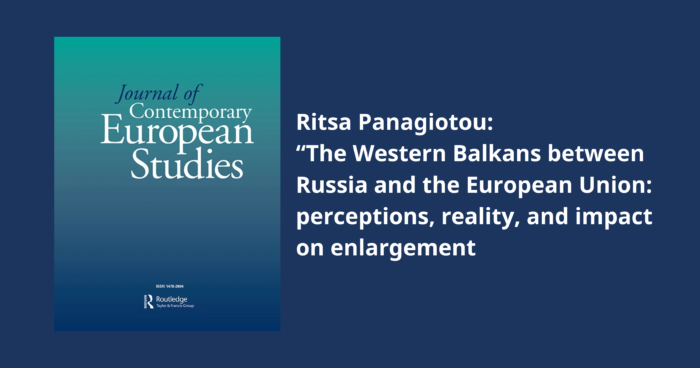Ritsa Panagiotou, Senior Research Fellow at the South-East Europe Programme of ELIAMEP, authored the article “The Western Balkans between Russia and the European Union: perceptions, reality, and impact on enlargement” which was published on the Journal of Contemporary European Studies.
Russia’s resurgent presence in the Western Balkans and the impact this could have on European Union enlargement have been the focus of increased attention and renewed interest in recent years. A major stimulus has been the realization that while the EU was looking inwards and focusing on its serious domestic problems – inter alia the crisis in Greece and the eurozone, Brexit, the refugee crisis and the rise of Eurosceptism and populist extremism in Europe – the geopolitical environment in the region had shifted. The delay in the accession process, and the subsequent disillusionment of these countries concerning their European prospects, allowed Russia to reassert its influence and strengthen its role in the region. Despite the fact that Russia’s economic presence is dwarfed by that of the EU, Russia has been very successful in taking advantage of its soft power and cultivating the perception that it is a crucial strategic partner that cares more about the region’s interests than the EU does. Addressing these misperceptions and promoting the full scope of the EU’s economic contribution to the region will be a crucial challenge for the EU in its efforts to keep the enlargement process on track and instability at bay.
You can read the article here.
You can follow the South-East Europe Programme on Facebook and X.




